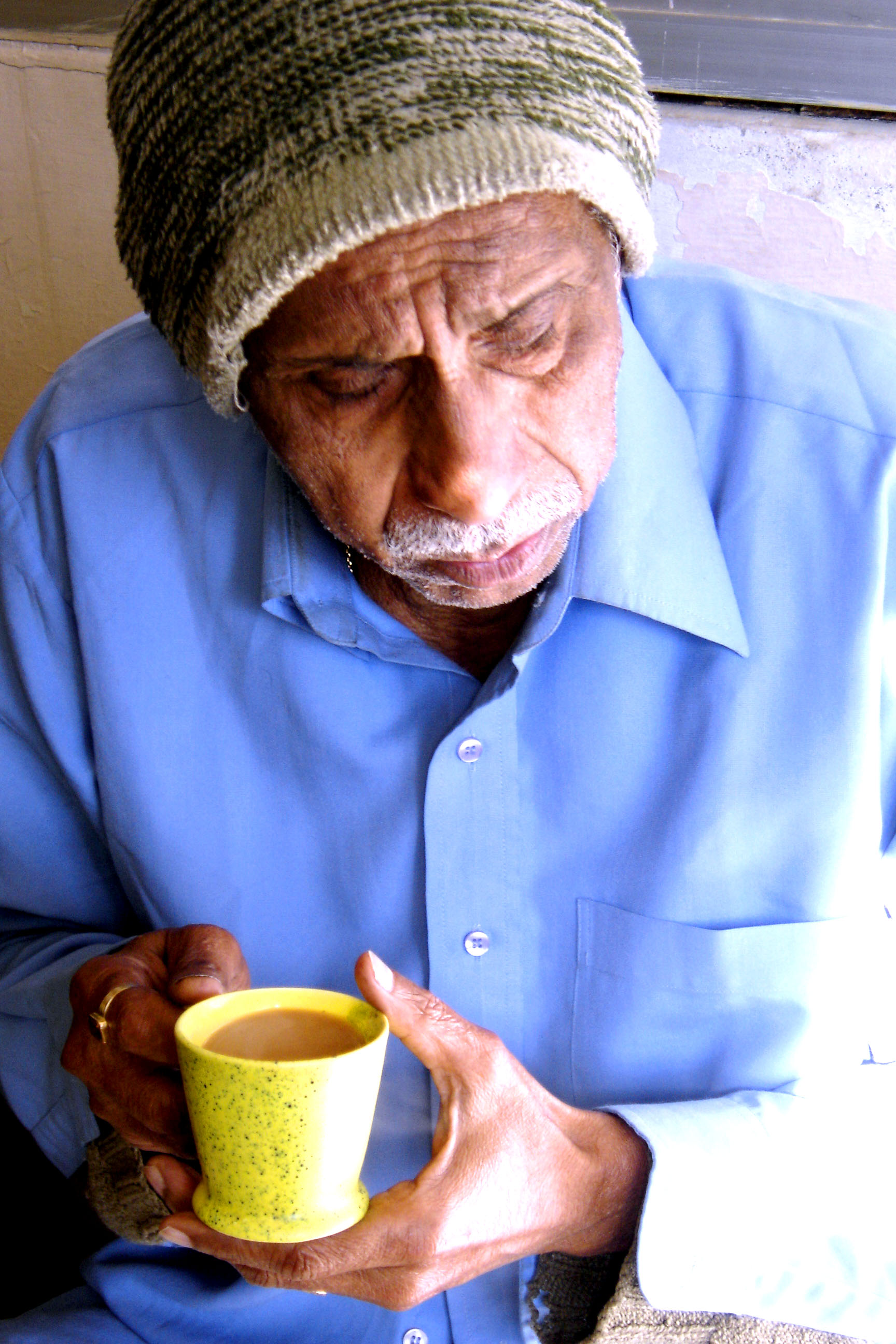Ryan W. asked this question via our latest website survey.
While seniors aren’t a majority in the homeless population, “there are many whose social marginality, lack of financial resources, or chronic ill health causes them to be seriously at risk of homelessness” (Robertson & Greenblatt, 1992). In Canada, these numbers are increasing. In 2013, there were four times as many seniors experiencing homelessness in Toronto as there was in 2009. Despite Canada having low old-age poverty rates in comparison to other G20 countries, the OECD reports that it increased while other countries’ rates fell.
 Causes of homelessness in old age
Causes of homelessness in old age
The National Coalition for the Homeless (2009) cited “poverty and the declining availability of affordable housing among certain segments of the aging” as primary causes of homelessness. Physical and mental health issues, social marginalization/lack of social support and loss of family/caregivers are also often among cited causes.
Though the factors that lead to homelessness are the same for seniors as they are for anyone (a mix of structural, systemic and individual/social), there are some gendered differences in how seniors become homeless. A 2004 Toronto study found that older women are more likely to become homeless due to primarily family-related crises, while older men tend to become homeless due to primarily a lack of employment.
The 2010 OECD report also highlights these differences. Senior women are more likely to have worked part-time, low-wage and/or temporary jobs – which can lead to poverty and homelessness. This especially affects senior women who are separated or divorced.
Another issue cited by the OECD is that seniors in Canada depend more heavily on private capital (assets, private pensions, etc.) to live than most other OECD countries. This leaves all low-income seniors vulnerable, as they are less likely to have such resources.
Isolation and sudden changes in circumstances (such as illness) are also contributors to senior homelessness. With such a wide array of causes, it is impossible to identify pathways to senior homelessness as being clear-cut.
Risks of being homeless in old age
Older people experiencing homeless are in what Kellogg and Horn (2013) call “double jeopardy:”
Aged persons who are isolated, live alone, and lack economic stability and family or social supports are at great risk for becoming homeless. Precipitating factors may include death of a spouse or a caregiver who provided support, job loss, familial estrangement, domestic violence, and mental illness. Once housing is lost, lack of general resources, lack of social supports, and declining health make it extremely difficult for low-income elderly men and women to relocate into other adequate housing…Not only do they face all of the problems that homeless people face regardless of age but they also encounter the problems that elderly people face regardless of housing status.
In the past, seniors experiencing homelessness have been neglected in terms of researching and creating services that are specific to their unique needs, but this has changed in recent years. We are still, unfortunately, behind when it comes to fully including seniors in planning services and interventions in our policies (see Barken et al, 2015).
The impact of homelessness during old age is often drastic and complicated. The Homeless Adult Research Project in Toronto reported some unfortunate findings:
- “Almost 70 percent of older homeless people reported first becoming homeless between the ages of 41 and 60.
- Most of the older adults currently at risk for homelessness had been homeless at least one time in their lives.
- Almost 60% of the chronic homeless rated their health as poor or fair; almost 50% of the new homeless rated their health as good, very good, or excellent. In the general population, 80% of older adults rate their health as excellent.
- According to the SF-12 (a standardized measure of health status), homeless older adults are physically older than their chronological age, and are in worse physical health than the general older population.”
Addressing senior homelessness
One Ontario case study of 129 service users (who were older and experiencing homelessness) “…confirmed the value of a continuous caring relationship with an identified provider and the delivery of a seamless service through coordination, integration and information sharing between different providers.” The study also underscored larger systemic failures that act as barriers to the program, which included “limited housing options available; limited income supports; and lack of coordinated, accessible community health and support services.”
Woolrych and Gibson made some recommendations on how we can work towards preventing and addressing senior homelessness:
- Funding based on needs rather than age (young people are frequently targeted for employment and substance use programs, but these do not benefit seniors, who look at their future differently)
- Providing affordable housing that meets seniors’ needs: supported living services, fulfills sense of purpose and community – HEARTH is an example of successful service-enriched housing
- Creating health services that properly address complex physical and mental health needs
- Address multiple kinds of abuse (physical, sexual, financial)
- Education on available resources for seniors
- More transitional housing
Not all services or solutions will work for all seniors experiencing homelessness. One population that requires additional consideration is Aboriginal seniors, who must cope with the challenges of aging as well as the ongoing legacy of colonization and racism in this country. Beatty and Berdahl (2011) recommend establishing long-term care facilities in major prairie cities and on reserves for Aboriginal seniors; as well as funding initiatives for Aboriginal caregivers. As I wrote before in a blog post about senior women, “more publicly funded long-term care for all Canadian seniors—like those created in Sweden, Denmark, and Iceland—would be beneficial for all, and would help relieve some of the financial stress on our seniors.”
This post is part of our Friday “Ask the Hub” blog series. Have a homeless-related question you want answered? E-mail us at thehub@edu.yorku.ca and we will provide a research-based answer.
